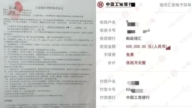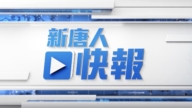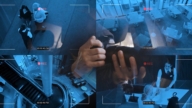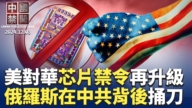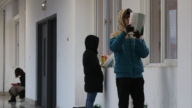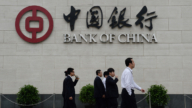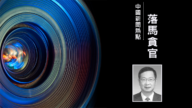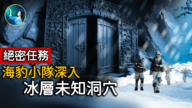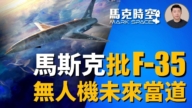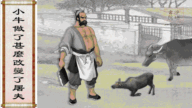【新唐人2011年12月26日讯】中国颇具影响力的80后作家韩寒,日前发表两篇博客文章《谈革命》、《说民主》,在网民中和知识界引发热烈讨论与争议,学者大多认为韩寒对“革命”、“自由”与“民主”解读错误或是片面,具有代表性的反映了一些知识份子在中共体制压抑下对现实和未来的无奈与迷茫。
临近年末,素来敢于批评时政的作家韩寒,综合媒体、粉丝有关国内外发生的维权、改革与革命事件的提问,12月23号发表《谈革命》一文作答,24号再发表《说民主》一文。
《谈革命》一文首先提出最具争议的问题:“中国最近群体事件频出,你认为中国需要一场革命吗?”
韩寒的回答是:“在社会构成越复杂的国家,尤其是东方国家,革命的最终收获者一定是心狠手辣者。很坦率的说,革命是一个听上去非常爽快激昂并且似乎很立竿见影的词汇,但是革命与中国未必是好的选择。”
北京文化评论家叶匡政表示,韩寒的观点,代表目前一些知识份子对革命的看法,其中包括对辛亥革命和孙中山的评价、以及对中共暴力革命的反思。
叶匡政:“因为早年尤其是中共这种畸形的革命,其实使中国的很多知识份子就导致了对革命出现一种恐惧,会让很多知识份子排斥一切的革命,认为革命可能就是用一种专制的权力代替另外一种专制权力,其实真正的革命并不是这个概念。”
韩寒在文章中认为,无论革命的起始口号有多么好听,到最后一定又会变回一个字,钱。说的好听一点就是把应该属于我们的钱还给我们,说难听一点就是掠夺式的均富。而中国人讲究清算,这也必然导致镇压。
《共鸣》杂志编委彭晓芸表示,韩寒的认识太肤浅了,革命一词有诸多层面,社会革命、价值革命、技术革命甚至政治革命未必就是灾难,不要想当然认为革命就是暴力。
叶匡政指出,很显然,革命可能创造自由,也可能带来奴役。所有的革命都有缺陷,衡量革命是否成功的标志,是看它是否真正扩展了人的政治自由空间。
叶匡政:“其实真正的革命,意味着是不是真正的能够创造或者扩展人的政治自由。那么,韩寒担心的这种革命可能是,他担心的是革命最后演变成一群人对另外一群人的镇压,而不是为了实现所有人的自由。”
韩寒在文章中说,革命不保证就能带来民主。现今中国是世界上最不可能有革命的国家,同时中国也是世界上最急需要改革的国家。韩寒认为对于国人,民主带来的结果往往是不自由。
《21世纪经济报导》财经版主任周斌表示,韩寒的《谈革命》把革命、自由以及民主都误读了,“不可谓不令人感到遗憾”。
韩寒在文章中说:“如果你硬要问我在中国,什么时候是个革命的好时机,我只能说,当街上的人开车交会时都能关掉远光灯了,就能放心革命了。”
《南方人物周刊》主笔何三畏指出韩寒的局限性:“在哀国民之幸,愤国民之不争的同时,小伙子跟集权统治的理论基础接轨了。希魔杀犹,袁氏复辟,后极权的合法性,无不是以韩寒哀怒的国民性为基础的。”
韩寒的文章引起上百万网民的点阅关注,一些网友认为韩寒的论点让人有“雾里看花”、“老调重弹”的感觉,甚至有网友认为是“五毛文”,但也有人认为韩寒是以反讽语气谈中共压制维权策略,还有网友说韩寒的文章以不会被官方删除的方式,宣扬“革命”的理念。
新唐人记者刘惠、李元翰、萧宇采访报导。
Writer Han Han Talks about Revolution and Democracy
Influential Chinese writer Han Han, born in 1980s, recently
published two blog articles about revolution and democracy.
The articles sparked heated discussions and debates
among netizens and the intellectuals.
The majority of scholars say that Han Han misunderstands
or partially understands revolution, freedom and democracy.
Han’s articles reflect some intellectuals’ frustrations and
confusions about the future.
These frustrations and confusions come from the suppression
caused by the Chinese Communist Party (CCP)’s ruling.
Renewed outspoken Chinese writer, Han Han, published an
article on December 23rd, entitled “Talking About Revolution".
The article is written in response to the questions asked by
Chinese media and his fans.
The questions cover rights-defense activities. Reforms and
revolutions that happened at home and abroad.
The next day, Han published another article called
“Talking About Democracy".
The article, Talking About Revolution firstly proposed a
most controversial question:
“As to China’s recent frequent mass conflicts, do you think
China needs a revolution?"
Han replied: “In the countries with the most complicated
social composition, especially the Eastern countries,
the final revolutionary winners will definitely be those who
are heartless and cruel.
Frankly, the term of revolution sounds very refreshing and
inspiring, even seemingly getting immediate effect.
But for China, revolution may not be a good choice. “
Beijing-based cultural critic, Ye Kuang says that Han’s article
represents views of some Chinese modern intellectuals.
It covers issues such as the 1911 Revolution, Sun Yat-sen
and the reflection on the CCP’s violent revolutions.
Yeh Kuang says" Back in its early years, the CCP waged
distorted revolutions making Chinese intellectuals afraid.
So many intellectuals reject all forms of revolution, believing
the revolution uses one autocratic power to replace others.
This is not the true concept of revolution."
Han Han’s article says no matter how good initial slogans of
the revolutions sounded in the end, they’ll became just one word, money.
To put it mildly, it means giving us the money back that
should be ours.
In harsh words, a predatory equal division of wealth is right.
The Chinese believes there is a final trial and punishment,
so such a mindset also inevitably incurs repression.
Editor of Resonance magazine, Peng Xiaoyun, says Han’s
understanding is too superficial.
Peng states the meaning of revolution involves many levels;
The social, value and, technological revolutions;
Even political revolution may not necessarily mean a disaster.
The revolution should not be taken for granted as violence.
Ye Kuangzheng points out that apparently, the revolution
can create freedom, but also may bring slavery.
All forms of revolutions have defects.
Whether the revolution succeeds depends on whether it
really expands people’s political freedom space.
Ye Kuangzheng: “In fact, the real revolution refers to whether
it can create or expand people’s political freedom.
What Han Han worries may be that kind of revolution. That is,
it will evolve into a suppression of one group over the other.
It may not be the one that achieves freedom for all. “
In his article, Han Han says that the revolution does not
guarantee a democracy in the current China.
China is least likely to break out revolution but is the nation
that has most urgent needs to implement reforms.
Han comments that for the Chinese, the consequences of
democracy often come with no freedom.
Zhou Bin, Finance column director at 21st Century Economic
Report says that Han Han’s articles are not clear
on the concepts of revolution, freedom and democracy. In
Zhou’s words, “it is quite regrettable."
Han’s article says, “If you insist on asking me when a good
time is for a revolution in China, I only say this:
When vehicles meet oncoming ones at night and all drivers
turn off the high beams, then you can initiate the revolution.”
He Sanwei, Editorial writer at Southern People Weekly points
out Han Han’s limitations,:
He says “By feeling both sorrow and angry with Chinese people
this young man has integrated the authoritarian ruling theories.
Hitler’s murdering Jews, Yuan Shikai’s restoring monarchy
and the legitimacy of post-totalitarian ruling,
All based on the national character Han feels angry with."
Han Han’s article attracted millions of netizens’ hits saying his
argument is looking at flower in fog, singing the same old tune.
Some even believe the article is written by CCP’s 50-cents
party.
One thinks that Han uses irony to comment on
CCP’s suppression on mass protests.
Another says Han’s article promotes revolution in a way
that avoids it ending.
NTD reporters Liu Hui, Li Yuanhan and Xiao Yu


